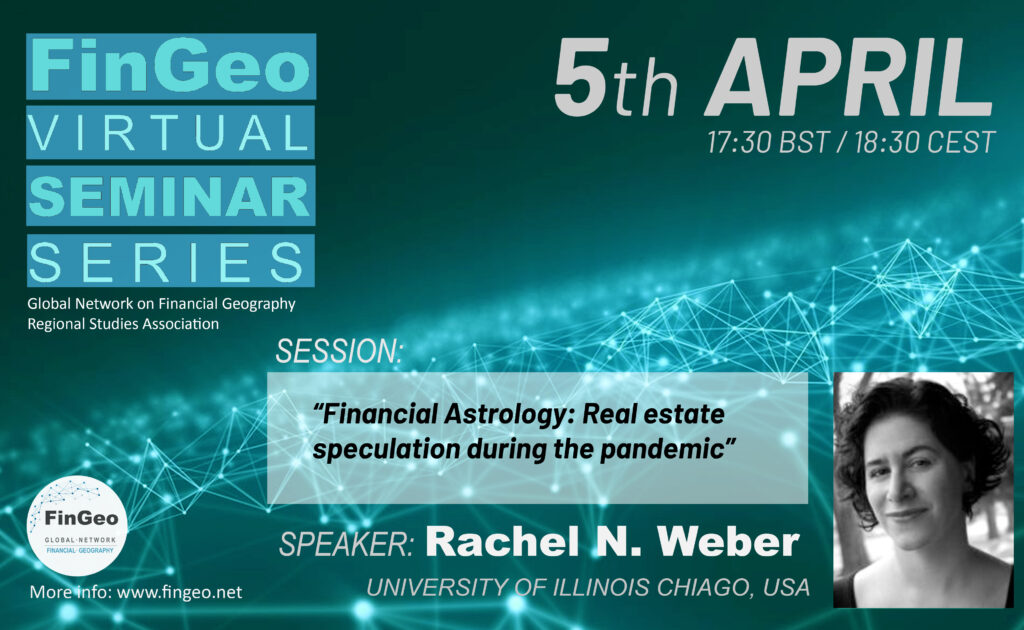
How can an unforeseen crisis like COVID-19 be a bumper year for real estate? In the United States, transactions, pricing, and new construction came to a brief pause with the onset of the pandemic but have since skyrocketed. Last year, the issuance of commercial mortgage-backed securities rose to its highest volume since 2007. Demand for assets is so strong that speculators are buying them in the “metaverse,” a completely virtual, imagined space. Record returns contrast sharply with the vacancies, evictions, business closures, and misery occurring simultaneously.
Speaker: Rachel N. Weber, University of Illonois Chicago, USA
My talk will examine the importance of expectancy in real estate speculation and valuation. Based on several years of ethnographic fieldwork and participant observation among a gamut of speculators from global property firms to investment funds to small land flippers, my research traces several connections between predictive knowledge practices like forecasting and property investment. I investigate the performativity of future imaginaries and how they affect the decisions of speculators in the present. Specifically, I show how discontinuities like the pandemic do not break the models and disrupt their inherently optimistic notions of growth, but instead how such imaginaries become even more compelling guides for conjuring the possibility of profit in the face of the uncertain.
Rachel Weber is a professor in the Urban Planning and Policy Department at the University of Illinois at Chicago where she teaches courses and conducts research in the fields of economic development, real estate, urban politics, and public finance. She is the co-editor of the Oxford Handbook of Urban Planning, a compilation of 40 essays by leading urban scholars. Her latest book, From Boom to Bubble: How Finance Built the New Chicago (University of Chicago Press) won the Best Book Award from the Urban Affairs Association in 2017. She is the author of over 45 peer-reviewed journal articles, as well as numerous book chapters and published reports. In addition to her academic responsibilities, she has served as an advisor to planning agencies, political candidates, and community organizations on issues related to financial incentives, property taxes, and neighborhood change. She was appointed to then-presidential candidate Barack Obama´s Urban Policy Committee in 2008 and by Chicago Mayor Rahm Emanuel to the Tax Increment Financing Reform Task Force in 2011.
Register aqui
